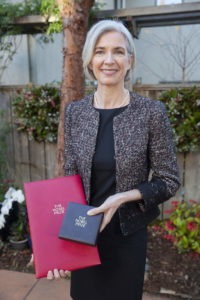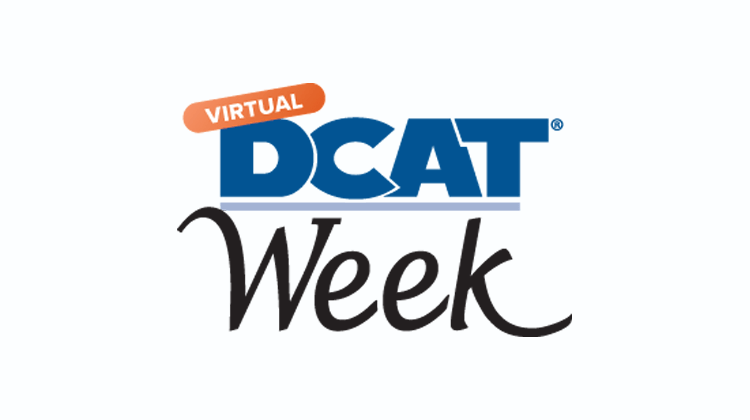Nobel Laureate in Chemistry Speaks on CRISPR at Virtual DCAT Week
Dr. Jennifer Doudna, co-awarded the Nobel Prize in Chemistry in 2020 for her groundbreaking work in developing CRISPR-Cas9 as a genome-engineering technology, explains CRISPR’s impact and its potential in drug development in an exclusive presentation for DCAT Member Companies and interview with DCAT’s President Sean Diver, Lonza AG.
Cutting-edge science
Jennifer Doudna, Ph.D, the Nobel Laureate in Chemistry (2020) and the Li Ka Shing Chancellor’s Chair and Professor in the Departments of Chemistry and Molecular and Cell Biology at the University of California, Berkeley and President, Innovative Genomics Institute, provided the Scientific Keynote Address at Virtual DCAT Week, which was held July 12–16, 2021. DCAT Week is the premier global event for companies engaged in the bio/pharmaceutical manufacturing value chain and is organized by the Drug, Chemical & Associated Technologies Association (DCAT), a global business development association.
 |
|
Dr. Jennifer Doudna Source/Photo Credit: Nobel Prize Outreach. |
Her groundbreaking development of CRISPR-Cas9 as a genome-engineering technology, with collaborator, Dr. Emmanuelle Charpentier, earned the two scientists the 2020 Nobel Prize in Chemistry. The power and versatility of CRISPR-Cas9 have opened up new and wide-ranging possibilities across biology, agriculture, and medicine.
Dr. Doudna explained that CRISPR is a genome-editing tool that allows scientists to alter DNA sequences and what makes it special is that this tool is programmable. The CRISPR-Cas9 system is guided by an RNA molecule to bind to a specific region in the DNA, and the Cas9 protein then acts like a pair of molecular scissors to cut the DNA strand and allow it to be altered in a precise manner.
CRISPR technology has far-reaching applications. It can be used in basic research to gain knowledge of cell function and development. In medicine, CRISPR is being used to better understand the basis of genetic diseases but can also be used as an actual therapy to correct disease-causing genetic mutations. In agriculture, it is being used to develop disease-resistant and climate-tolerant crops and to improve crop yields.
Within medicine, she outlined therapeutic areas in which CRISPR is being applied in clinical trials that are already underway. These areas including treatments for sickle-cell disease, certain cancers, congenital blindness, chronic infections, and hereditary transthyretin amyloidosis, a rare disease characterized by the buildup of abnormal deposits of a protein called amyloid (amyloidosis) in the body’s organs and tissues. CRISPR also will be evaluated in upcoming clinical trials to treat rare autoimmune diseases, liver disease, heart disease, hemophilia, and Duchenne muscular dystrophy, a genetic disorder characterized by progressive muscle degeneration and weakness. It can also be applied in the development of diagnostics.
In terms of her continued work in CRISPR technology, her research group at the University of California at Berkeley is pursuing a mechanistic understanding of fundamental biological processes involving RNA molecules. Recent work has focused on development of new tools for genome editing, research into delivery techniques for CRISPR-based therapies, CRISPR diagnostics, and continued investigations into the structure and mechanism of CRISPR-Cas systems. Dr. Doudna also founded and serves as President of the Innovative Genomics Institute, composed of diverse researchers at the University of California, Berkeley and the University of California, San Francisco, which in addition to scientific efforts is involved in advancing public understanding of genome engineering, providing resources for the broader community, and guiding the ethical use of these technologies.
Dr. Doudna also outlined how she became involved in science, starting first at an early age with an interest in learning more about the plant life and environment in growing up in Hawaii and later guided by educators and mentors in science, which formed her basis on the value of STEM education.







